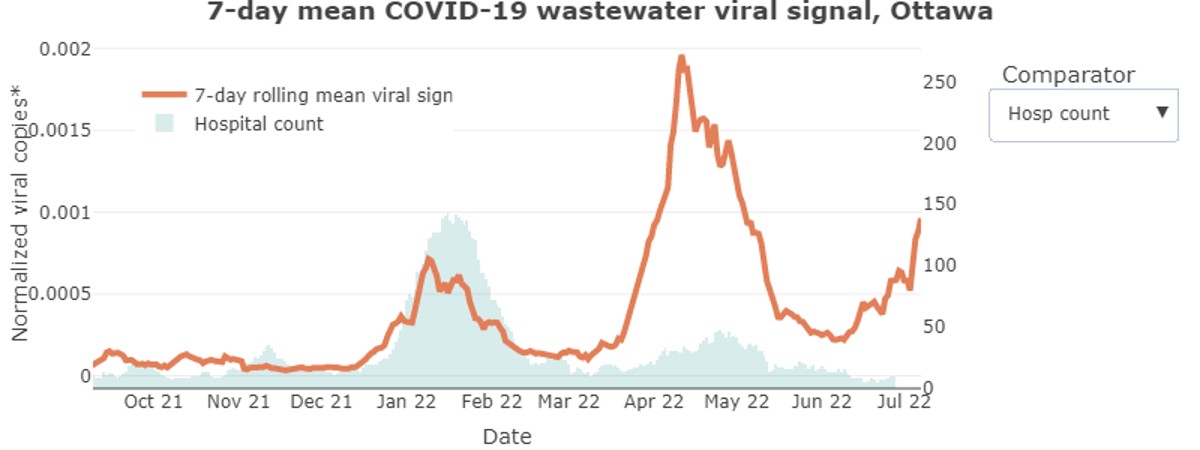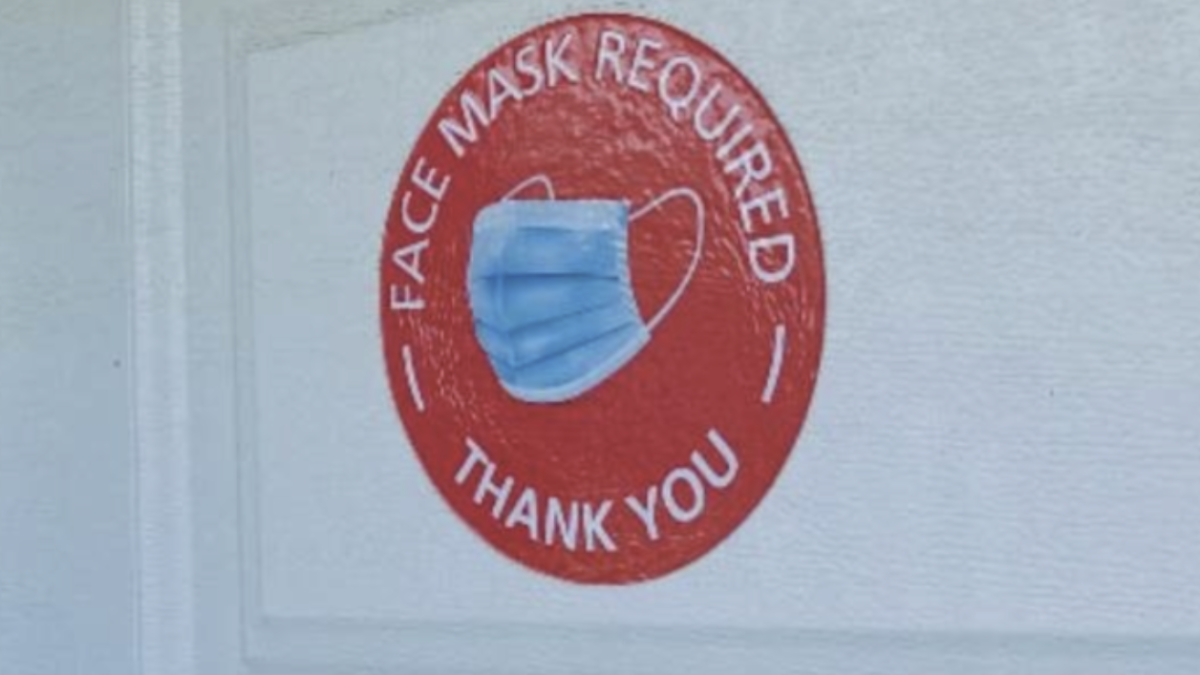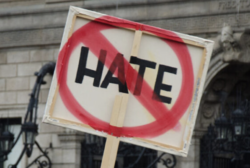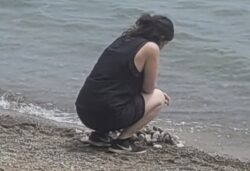Two community groups want Ottawa Public Health to make masking in high-risk settings mandatory.
In a recent move, Horizon Ottawa and the Disability Justice Network of Ontario issued the call to Ottawa Public Health to reintroduce protective measures as COVID-19 wastewater levels climb again.
“It’s time for Ottawa Public Health to get back to doing their jobs,” said Megan Linton, of the Disability Justice Network of Ontario .
The province met two of the groups’ other demands on Wednesday by making second COVID-19 booster doses available to all adults and extending access to free rapid test kits.
The groups also want Ottawa Public Health to reintroduce masking in essential settings, provide free access to N95 masks, bring back PCR testing to the general public and set indoor capacity limits.
Ontario’s chief medical officer Dr. Kieran Moore said he does not recommend bringing back mask mandates at this time.
Ottawa’s seven-day average wastewater viral signal is rising again, according to COVID-19 wastewater monitoring data. The rolling average is higher than the fifth wave in January and about half the peak in the sixth wave during the spring. There are about 24 Ottawa residents hospitalized because of COVID-19, according to the seven-day average by Ottawa Public Health.

All levels of government can put in specific health measures to avoid putting the onus on individuals to protect others, Sam Hersh, a board member with Horizon Ottawa, said.


Linton says she is immuno-compromised and has been exposed to COVID-19 more times after masking restrictions lifted earlier this spring than in the first two years of the pandemic. That’s despite the changes she said she’s made after the health measures loosened.
“I could go to my pharmacy. Now, I can’t go,” she said. “Now, I need it delivered and I need to schedule my time around a delivery person. Now, I can’t go grocery shopping.”
Wearing any mask is more protective for elders and immuno-compromised people along with anyone who doesn’t know the risks of catching COVID or long COVID symptoms, Linton said.
“You have the opportunity to care for yourself and the people in your community,” Linton said. “Even if you want to get back to normal, a piece of cloth over your face is not a burden on your life. What if you get COVID multiple times and you’re winded going up stairs?”
Hersh said he caught COVID-19 in December and still has some symptoms.
“I’m a healthy, youngish man and I still got long COVID,” Hersh said. “While some people just catch a cold, it could be long lasting for others.”
Hersh said pandemic fatigue affected the awareness of COVID-19 risks. While he said advocates have felt burnt out calling for more protection while there are other issues surrounding the upcoming municipal election, he said they’ll continue.
“While some people just catch a cold, it could be long lasting for others.”
Sam Hersh, Horizon Ottawa board member
The groups also called on Ottawa Public Health to disclose outbreaks in high-risk settings, write to the provincial government for an extension of paid sick days and financial aid and return to daily updates on COVID transmission.
In an emailed response, Ottawa Public Health said it publishes COVID-19 reporting on Tuesdays and Fridays with the same detail as the initial daily reporting. It said publishing twice weekly allows the epidemiology team to focus on other core services, such as mental health, substance abuse, equity and diversity, and other infectious diseases.
Ottawa’s Medical Officer of Health, Dr. Vera Etches, has the power to introduce health measures against communicable diseases without provincial approval under section 22 of Ontario’s Health Protection and Promotion Act.
Ottawa has already had COVID-19 measures in place separate from the provincial government. Etches ordered mandatory mask-wearing indoors in July 2020, which city council replaced with a masking bylaw that lasted until August 2021.
Etches has also issued class orders under section 22, including capacity limits and mandatory masking on outdoor rinks, winter trails, tobogganing hills and playgrounds. These orders have since been revoked.
Ottawa Public Health said Etches made these class section 22 orders to address small gaps in provincial orders. It added that local officers of health are no longer able to issue mandatory letters of instruction for COVID-19 measures – which were permitted under the Re-opening Ontario Act – because of Ontario’s changes to the Act in February 2022.




